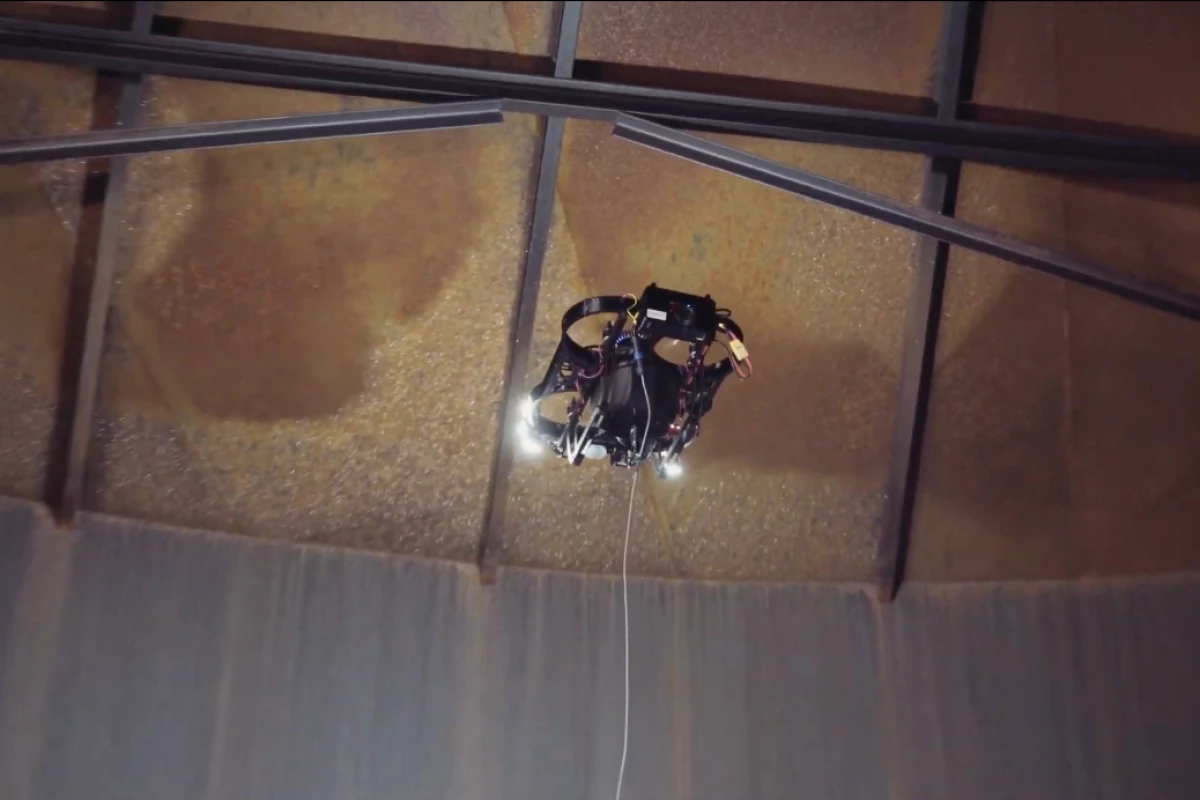The liquid-carrying tanks on tanker ships have to regularly be inspected for cracks – a task which is typically performed by humans. A new drone, however, is claimed to do the job much quicker and more thoroughly.
When people perform such inspections, they typically have to climb down inside each tank, then scrutinize each of its walls from top to bottom. In order to do so, they may have to set up scaffolding, use climbing ropes, or paddle a rubber raft floating on water inside the tank.
Norwegian startup Scout Drone Inspection has developed what it claims is a superior alternative, in the form of the Scout 137 drone. The quadcopter is equipped with a 4K video camera, a LiDAR module for mapping and obstacle avoidance, plus six LED spotlights that put out a combined 10,000 lumens.

Real-time video is relayed from the drone to its operator's control tablet via a tether that runs up and out of the tank – that tether also provides mains power to the aircraft, so battery life isn't an issue. Down the road, plans call for the Scout to fly through the tanks autonomously.
As it flies, the drone creates a 3D digital map of the inside of the tank. If either the operator or the Scout's cloud-based image-analysis software detect any cracks or other faults, their location can be marked on that map, so repair crews will know where to find them.
As a result, according to the company, inspections that would have taken days can be performed in a matter of hours. This means that they could conceivably take place more frequently than is currently the case.
The Scout 137 drone system is now being shipped to its first corporate customers, after having been field-tested by oil and gas companies such as Equinor, Aker BP, DNV and Altera Infrastructure. It's demonstrated in the following video.
Source: Scout Drone Inspection




